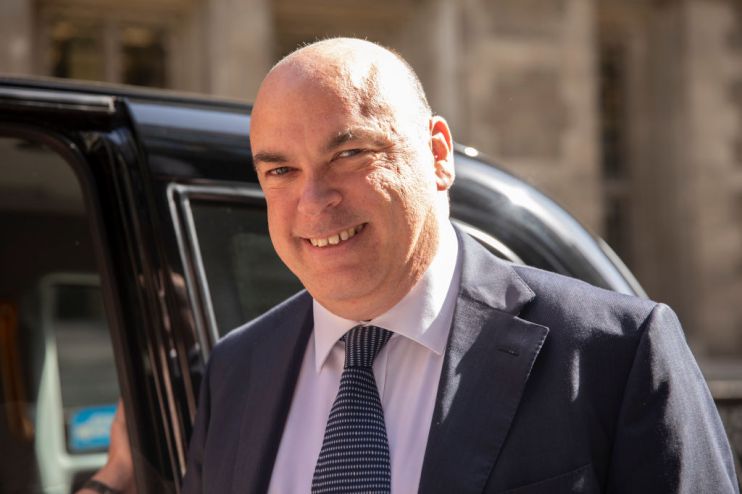Mike Lynch arrest: Autonomy CEO submits himself for arrest in US extradition case

Autonomy founder Mike Lynch has this morning submitted himself for arrest in what his legal team said is a formality triggered by a US extradition request.
Lynch – who is facing charges of securities fraud, wire fraud and conspiracy in the US related to the 2011 sale of Autonomy to Hewlett Packard (HP) – has said he will contest the extradition.
He was arrested in London this morning and appeared at Westminster Magistrates’ Court, where he was granted bail on the condition of a security of £10m to be placed with the court ahead of a second hearing next month.
Judge Emma Arbuthnot banned Lynch from applying for any international documents, leaving the country or entering international airports, ferry ports or train terminal, Sky News reported.
The British businessman is currently awaiting the outcome of a separate civil fraud trial in the UK, after HP sued him and ex-Autonomy finance chief Sushovan Hussain for $5.1bn for allegedly falsely inflating Autonomy’s revenue ahead of its £8.4bn sale to the tech giant.
Lynch has denied all of the accusations.
In a statement this morning Lynch’s lawyers Chris Morvillo and Reid Weingarten said: “Since HP first raised these allegations more than seven years ago, Dr Lynch has steadfastly denied them and has worked hard to properly respond and set the record straight.
“The UK Serious Fraud Office previously investigated and did not pursue the allegations. Dr Lynch has now answered HP’s claims in the appropriate forum, the High Court in London, where he attended court every day of the 10-month trial.
“During that trial, Dr Lynch testified about all of these allegations for more than 20 days. He has not hidden, nor has he shied away from defending his conduct. Having patiently and diligently defended the case in England for several years, he awaits the civil trial judgment.
“The US Department of Justice should not have commenced extradition proceedings prior to the judgment of the English High Court.”
Last month former Brexit secretary David Davis urged the home secretary to block the extradition request until the verdict in the UK civil trial has been decided, which is expected in the next few months.
Davis argued that if Lynch is found not guilty in the UK, then a criminal trial in the US is unwarranted.
Lynch has been indicted in San Francisco on 17 counts, including wire fraud, conspiracy and securities fraud, which carries a maximum term of 25 years in prison.
In May, Hussain was sentenced in the US to five years in prison, fined $4m and ordered to forfeit $6.1m after being convicted on 16 counts of wire fraud, securities fraud and conspiracy.
UK civil trial
Evidence in the trial at London’s High Court – which is the biggest civil fraud trial in UK history – came to an end in January, with a judgement not expected for several months.
During the course of the trial, lawyers for HP argued that Lynch and Hussain had falsely inflated the software company’s revenue through the sale of hardware. HP alleged that the hardware sales were usually made at a loss, to meet market revenue consensus.
The company also said that Lynch was heavily involved in the day-to-day running of Autonomy and “committed a deliberate fraud”.
However Lynch, who counter-sued HP, blamed HP for the failed acquisition, accusing the tech giant of treating Autonomy like its “unwanted stepchild” and saying the board lost their nerve over the deal.
He claimed that HP “mishandled” the deal and “failed to follow any coherent integration for Autonomy”, leading the US technology giant to suffer losses and seek a scapegoat.
Lynch also denied having day-to-day involvement in Autonomy’s accounts.
“He was not, as the claimants now say, omnipresent and omnipotent,” Robert Miles QC, representing Lynch, said.
How does extradition to the US work?
In order for a “requested person” to be extradited, the US – which is classed as a category 2 territory – first has to make an extradition request to the Home Office.
If the request is judged to be “for the purpose of prosecuting or punishing a person accused or convicted of an offence in a category 2 territory” , and “made by an appropriate authority on behalf of that territory” it will be certified and sent to the courts.
An arrest warrant can then be issued by the court, if it is satisfied that “there are reasonable grounds for believing that the conduct described in the request is an extradition offence”, according to government guidance.
After the person is arrested, they are brought before the court where the judge will set a date for an extradition hearing, which is what happened in the Lynch case today.
At the extradition hearing, the judge will decide whether all procedural requirements are met and that no statutory bars to extradition apply. The case can then be sent back to the home secretary for a decision.
At this point it is possible to appeal to the High Court.
If no appeal is made or it is unsuccessful, the secretary of state will decide whether to extradite the requested person, who has four weeks to make representations against the extradition.
The High Court can grant permission to appeal the extradition again, and the High Court decision can be appealed in the Supreme Court.